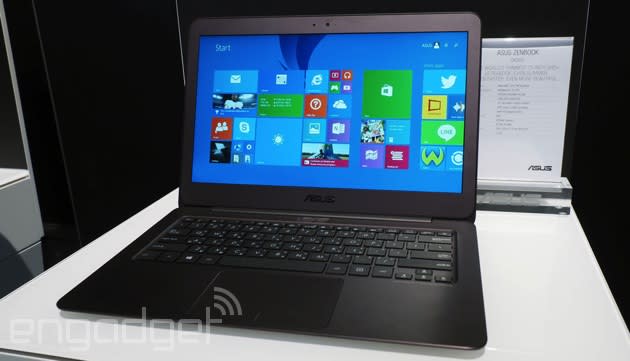Daily Roundup: LG leaks the G4, Amazon predictions and more!

In today's Daily Roundup, read all about how LG accidentally leaked the G4, its new flagship phone. In other news, Amazon's web services are getting smart enough to make predictions for you and the PC market is shrinking because customers are no longer upgrading as frequently. Get your fill of these stories and more below.
LG inadvertently reveals its leather-clad G4 phone a little early
Oops. LG is supposed to be unveiling its range-topping G4 smartphone on April 28th, but well-known leaker Evan Blass has discovered an unannounced product site that reveals a ton about the new Android flagship a couple of weeks in advance. A lot of the text is clearly placeholder material, but there are a few noteworthy revelations here. The G4's back will have several color options (including multiple shades of real leather), and that super-fast f/1.8 camera is helped out by an infrared color accuracy sensor, second-generation image stabilization and a full manual mode.
Amazon's web services are smart enough to make predictions
You no longer have to run a tech giant (or work in a lab) to take advantage of learning computers. Amazon has launched a machine learning feature for Web Services that lets any developer use this computer intelligence to make predictions. Instead of having to sift through data yourself and spend ages fine-tuning algorithms, you let Amazon's servers comb through the info and create predictions largely on their own. This potentially saves you a ton of time, especially if you're running a small outfit that can't afford a lot of servers - Amazon claims that it took 20 minutes to solve one problem that previously took 45 days.
The PC market is shrinking again as companies stop upgrading
It's not a good time to be a PC maker... especially if you cater to the corporate crowd. Both Gartner and IDC estimate that the computer market shrank between 5.2 to 6.7 percent in the first quarter of 2015, in part because many companies stopped upgrading from Windows XP. Simply put, many of the businesses that wanted to modernize already have - they're not propping up the market like they were for a good chunk of 2014. IDC goes so far as to claim that this was the lowest volume of PC shipments since the start of 2009, which is no mean feat given that the world was still reeling from an economic collapse at the time.
ASUS' fitness-centric VivoWatch has a 10-day battery
In our review, we became quite fond of ASUS' rather handsome ZenWatch except, perhaps, for its two-day battery that most Android Wear watches are getting these days. Apparently the company heard us loud and clear, and it's now prepping the launch of its VivoWatch to offer a more compelling 10-day battery life. While details are scarce at the moment, ASUS has so far revealed that its new fitness-centric wearable has a tough stainless steel body, an IP67 rating against dust and water, heart-rate monitoring and sleep tracking. Judging by the above picture, this new device - which will likely not run on Android Wear - appears to feature a power-saving black-and-white display, along with some sort of colored light indicator bar below it.
HP's Omen Pro is a slim laptop meant for serious work
Tempted by HP's svelte Omen gaming laptop, but need even more horsepower? Say hello to the Omen Pro. It shares the same aluminum 0.78-inch, 4.68-pound frame as its gaming sibling, but it packs in faster Core i7 processors and an NVIDIA Quadro K1100M graphics card. It also shares the original Omen's unibody aluminum case and 15.6-inch 1080p touchscreen, and it sits right alongside HP's ZBook workstations, except it balances style and hardware prowess. The Omen Pro is available today, but at $2,199, it's clearly targeted at the graphics-hungry professionals actually making games, and not just people looking for their latest Far Cry fix.
DARPA creating software that won't need upgrades for a century
Software upgrades and outdated applications that don't work on new platforms are just a fact of life for people who use computers and other devices. DARPA, however, wants to change that by making software systems that can run for over a century without getting updates from their developers and despite upgrades in hardware. Pentagon's mad science department has recently announced that it has begun a four-year research to figure out what algorithms are necessary to create software that "can dynamically adapt to changes." The agency calls the project "Building Resource Adaptive Software Systems or BRASS," and it knows it won't be easy. In fact, DARPA's expecting to build everything from the ground up. In return, though, we could see a whole new list of programs with longer lifespans that are easier to maintain.
3D Robotics takes on DJI with Solo 'smart drone'
If you're in the market for a camera drone, things just got real. Last week, DJI updated its ubiquitous Phantom series with a 4K video version. Today, 3D Robotics (makers of both consumer and professional craft) ups the ante with Solo - a stylish "ready to fly" quadcopter that challenges the Phantom (on the 'copter side of things) in quite a few ways. You'll need to bring your own camera though.








